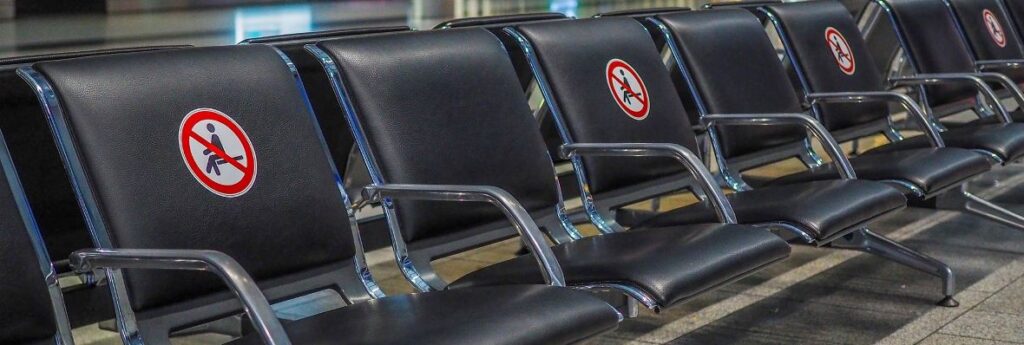WestJet Airlines Ltd. is dealing with so many employees out sick with the Omicron variant that it is being forced to cut 15 percent of its scheduled flights through to the end of January. The move comes as airlines around the world grappled with similar issues, as well as weather, seeing thousands of flights cancelled and hundreds of thousands of passengers stranded during the holidays.
WestJet spokeswoman Morgan Bell confirmed via email that the airline has seen a 35% rise in active COVID-19 cases among staff in recent days, with 181 employees currently testing positive for virus.
In a statement Dec. 30, WestJet’s interim chief executive Harry Taylor said the airline had seen a significant increase in delays and cancellations impacting its business over the past 72 hours.
“We could not have anticipated the rapid and unpredictable impact of the Omicron variant on our people and operations, coupled with prolonged frigid temperatures across Western Canada and global staffing shortages,” Taylor said.
“Despite all contingency planning, in addition to hiring back thousands of WestJetters to safely support peak operations, we find ourselves no longer able to predictably resource our planned schedule due to Omicron impact.”
As a result of the staff shortages, WestJet will remove about 15% of flights from its schedule through Jan. 31. Prior to the cuts, the airline had been operating 450 flights per day.
The move is a “last resort,” Taylor said, but reflects the reality of the service level WestJet can now “realistically deliver.”
“It is the best option to ensure the availability of our frontline staff and third-party service providers, while minimizing the impact on our guests,” he said.
WestJet said it would notify all customers with affected flights. For any WestJet-initiated cancellation or schedule change, where the schedule change was greater than 90 minutes or one or more stops were added, guests are eligible for a refund.
As of Dec. 30, Thursday, WestJet had cancelled 74 of its 466 scheduled flights for the day, according to data provided by Cirium, an airline data company, which also reported that Air Canada had cancelled 76 of its 905 scheduled Thursday flightswhile Porter Airlines had cancelled none and Flair Airlines.
Air Canada spokeswoman Angela Mah said in an email that the carrier was experiencing “limited disruptions,” most of which were due to adverse weather across the country.
She added that Air Canada continues to evaluate and adjust its route network for 2022 in response to the trajectory of the pandemic, government-imposed travel restrictions and quarantines, regulatory requirements, and overall demand.
Air Transat said earlier in the week it had not cancelled any flights due to Omicron.
The federal government requires both Canadian airline employees and passengers departing from Canadian airports to be fully vaccinated against COVID-19.
On Thursday, WestJet said additional measures from federal and provincial governments are “urgently needed” to minimize further disruption to the aviation sector.
The airline is calling for Canada to follow the guidance from the US Centers for Disease Control which recommended last week that Americans with COVID-19 should isolate for five days rather than 10 if they’re not showing symptoms. Several provinces have followed suit, but WestJet wants a uniform standard across the country.
WestJet also wants to see a removal of the self-isolation requirement for asymptomatic close contacts.
South of the border, US carriers began taking steps to reduce cancellations by hiking pilots and crew wages. (See following story Pay To Stay).
When winter weather hit the Pacific Northwest last week, Alaska Airlines urged customers to delay any “non-essential” trips that were planned through the weekend. With full flights over the New Year’s holiday, the airline said it wasn’t sure it could rebook stranded passengers for at least three days.
Airlines hope that extra pay and reduced schedules would get them through the holiday crush and into the heart of January, when travel demand usually drops off. The seasonal decline could be sharper than normal this year because most business travellers are still grounded.

